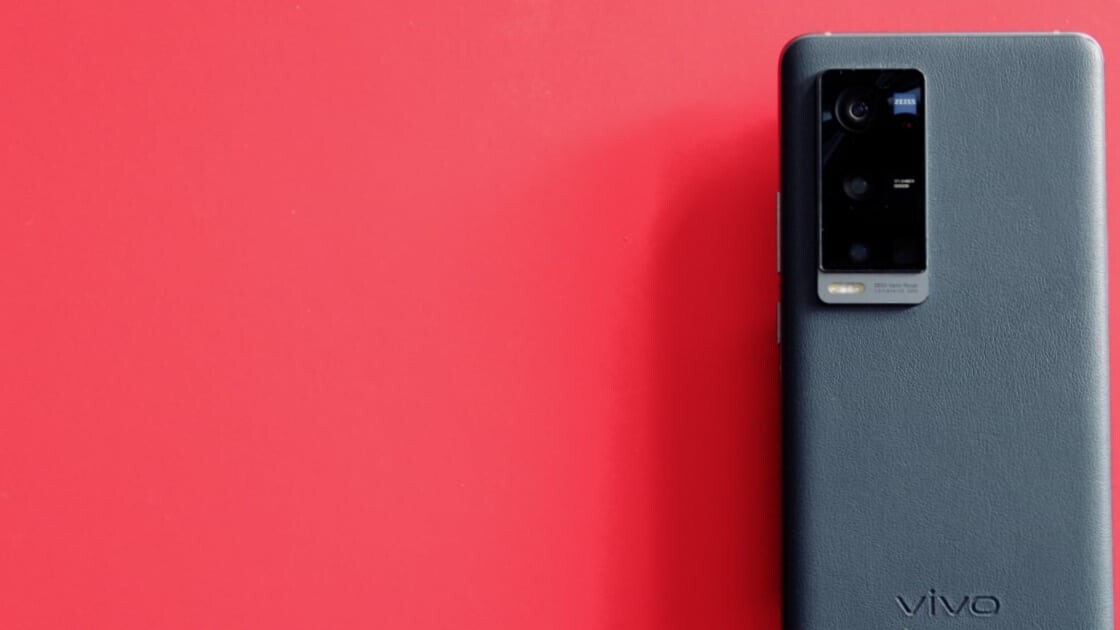
It must be camera partnership season right about now. While the folks over at OnePlus have boasted about their $150 million Hasselblad collaboration in the last few weeks, Vivo joined hands with Zeiss.
The deal was announced last year, but as a result of that partnership, the X60 series is launching today globally. The Chinese manufacturer is launching three phones: the X60, the X60 Pro, and the X60 Pro+ (it’s a tongue twister). Apart from having Zeiss-powered lenses, the company has also included gimbal support — which it introduced with the X50 Pro last year — for the Pro and the Pro+ model.
If you want to know more about these phones, and their specifications, head over to this post.
Here, we’re going to talk about the top-tier X60 Pro+, its design, and its versatile camera system. I’ve been using the phone for over a week, and I love that the camera has many options to shoot a photo or a video that you envision.
But before we get into the nitty-gritties, let’s that a look at the phone’s specs.
Specifications
- Screen: 6.56-inch FHD+ AMOLED display
- Refresh rate: 120Hz
- Processor: Qualcomm Snapdragon 888
- RAM: 12GB
- Rear camera: 50-megapixel main sensor with f/1.6 aperture (1/1.31-inch) + 48-megapixel ultrawide sensor with f/2.2 aperture and gimbal stabilization + 8-megapixel periscope telephoto sensor f/3.4 (5x optical zoom) + 32-megapixel portrait senor with f/2.08 aperture
- Front camera: 32-megapixel with f/2.5 aperture
- Internal storage: 256GB UFS 3.1 (for faster read and write speeds to open apps and access content quickly)
- Security: In-screen fingerprint sensor; face unlock
- Battery: 4,200 mAh
- Charging: 55W wired flash charge
- Software: Funtouch OS 11.1 based on Android 11
Design and features
I want to talk about the camera at length, so let’s get the other stuff out of the way first. Vivo has designed a very slim phone if you don’t count the gargantuan camera bump, so one-handed grip and operation are a breeze. Plus, the textured vegan leather on the back allows for a nice grip on the phone.
A minor complaint I have about the size of the camera bump is that it gets in the way of how I usually hold a phone. I had to adjust my grip a bit, and it took me a day or two to get used to it.

The AMOLED screen is delightful and bright, and you can safely use it outdoors. I watched Formula 1: Drive to Survive on Netflix, and it was a joy to see all those vibrant colors with HDR10+ enabled. I wish the device had dual speakers, though.
The performance of the Qualcomm Snapdragon 888 was hiccup-free in multitasking, switching between apps, watching videos, or playing games such as Cover Fire.

Vivo has included a few nice little additions in the retail box. It has a 55W charger that’ll charge half of the battery in under 50 minutes. The battery life itself is fine and the phone could last a day depending on the usage. The box also has a pair of wired earphones that you’ll have to use with an audio jack-to-USB-C adapter. The X60 Pro+ has a Cirrus DAC that’s capable of playing 32-bit tracks sampled at 196kHz, so if you have some lossless versions of your favorite albums, that’ll come in handy for more detailed audio output.
Camera
The Vivo X60 Pro+’s camera setup is one of the rare occasions where all sensors do their job well, and they’re not just there to allow the company to talk up a fancy-sounding “quad-camera assembly.”
The phone’s main sensor is a 50-megapixel GN1 sensor developed by Samsung with an f/1.6 aperture. The most amazing thing about it is that its size 1/1.31-inch — one of the largest around in the market. In comparison, Huawei’s P40 Pro+ had a 1/1.28-inch sensor, and Xiaomi’s upcoming Mi 11 Ultra will reportedly have a 1/.12-inch sensor.
Because of the large sensor, the camera captures plenty of details by default. So colors are accurate yet punchy, even in slightly darker conditions. Some pictures suffer from over-sharpening though, and a software update could fix that.
The low-light photos usually display a reasonable amount of detail. Plus, the T* coating helps avoid ghosting and excessive lens flare in places with a lot of lights. The large sensor does a great job of capturing shadows and contrast without triggering the night mode. For videos, the main sensor doesn’t have gimbal stabilization, but it has electronic stabilization and night enhancement mode. A combination of both would’ve been wonderful.
Interestingly, Vivo has included its gimbal support in the ultrawide angle camera. It offsets hand movements while shooting videos and photos to enhance the quality of the final image.
While photos in daylight capture colors accurately, during nighttime or indoors, you’ll find the ultra-wide angle camera displaying different colors than what you’ll get with the main sensor. It’s not bad, but you might need to adjust your shot a bit to get the result you want. The photos also distort a lot around the edges, and Vivo probably needs to apply a stronger correction algorithm to sort these out.
Both telephoto and portrait sensors come in handy for 2x and 5x zoom. When you zoom in at 5x, some noise creeps in, but it’s still a great addition to take photos of pets and babies.
There’s no dedicated macro sensor, but the main sensor’s crop and refocus works as macro mode and gets in good detail without too much noise and fuzziness.



The portrait sensor does its job well with variable depth of field during and after you take the picture. Plus, it offers plenty of styles and filters to shoot different kinds of photos.
Vivo’s taken pride in its selfie cameras for a while now, and they’re indeed pretty good at capturing details of your face. This 32-megapixel snapper is not different, but you’ll want to turn off the all the beauty filters that are enabled by default.
The X60 Pro+ also has supermoon and astrophotography modes; I took a few photos through them, but sadly, Delhi’s hazy skies don’t make these projects easy. Plus, there are a ton of filters and effects in the camera app and it could take you many days just to try them all.
Who’s it for?
The Vivo X60+ has an on-par spec sheet for flagships of 2021 with a 120Hz fullHD+ display and a Snapdragon 888 processor. But its appeal lies in its camera more than anything else. You get a large main sensor, a gimbal-stabilized ultrawide-angle lens, and a 5x optical periscope telephoto lens, and all of them take good photos in most conditions.
In certain aspects, this phone’s camera might overtake the Samsung S21 Ultra and the OnePlus 9 Pro in certain conditions, such as low-light photography. Plus, its variety of sensors and software options makes it an attractive purchase if you use your phone camera in various conditions.
In India, the phone is priced at ₹69,999 ($963), the same as the OnePlus 9 Pro, and if you could get over using the Funtouch OS, Vivo’s flagship is a great offering.
Get the TNW newsletter
Get the most important tech news in your inbox each week.








































